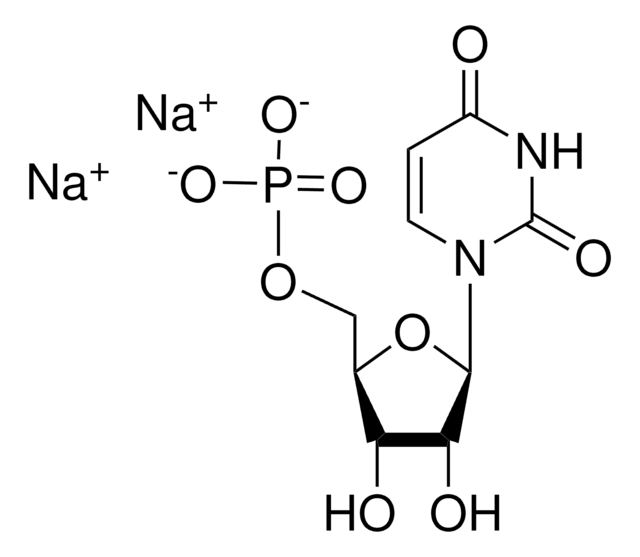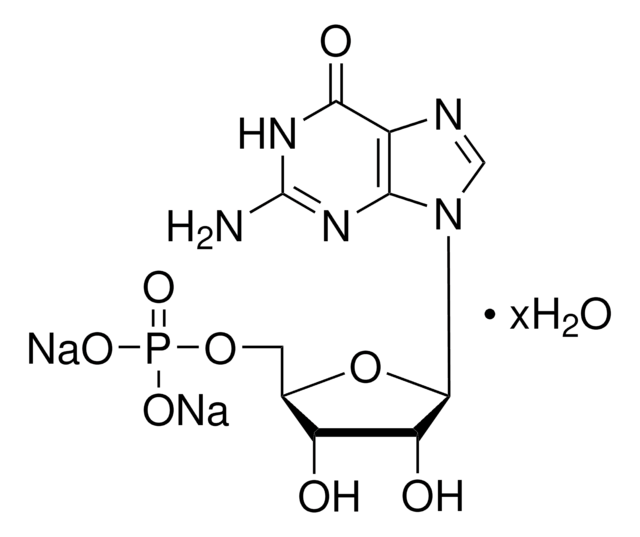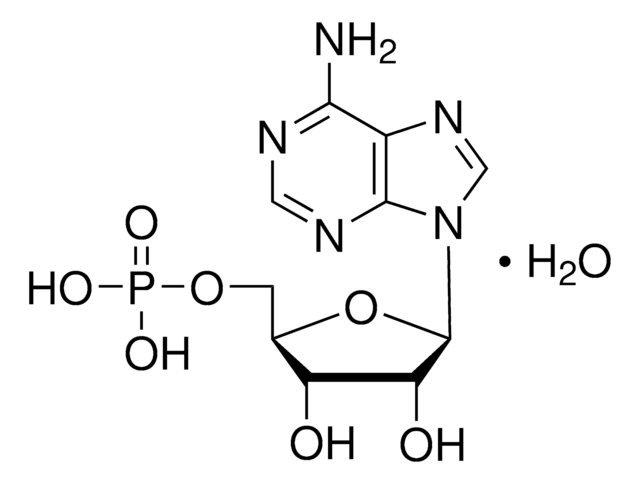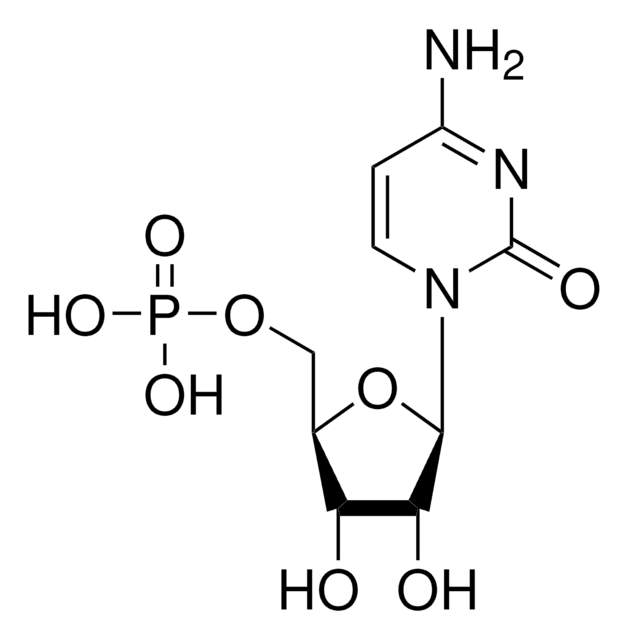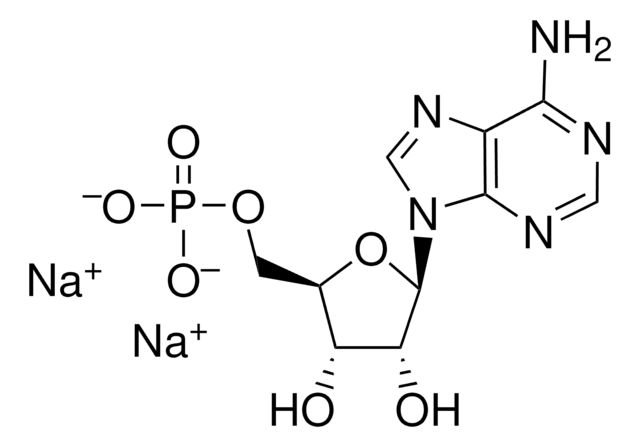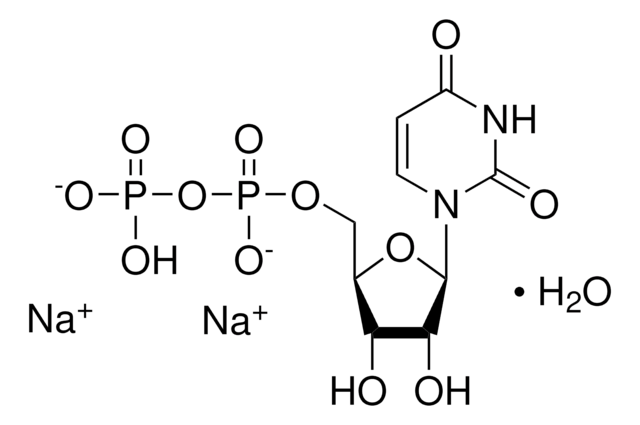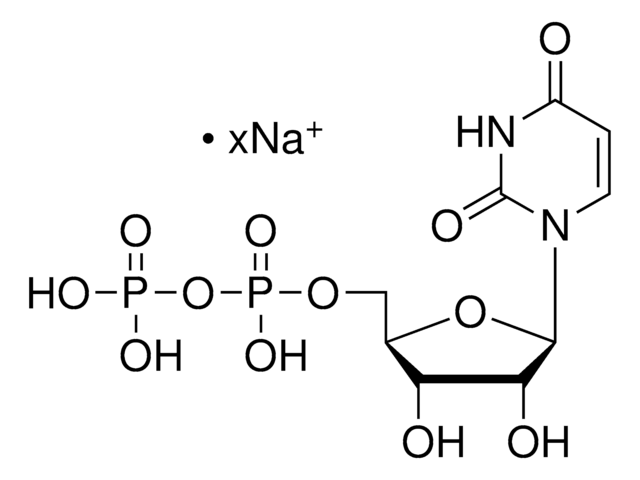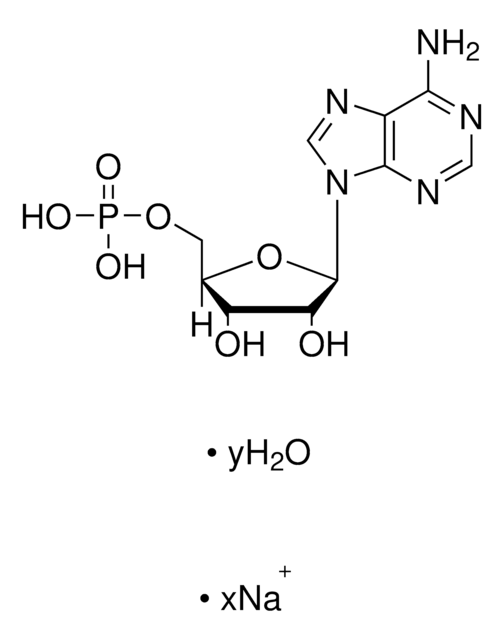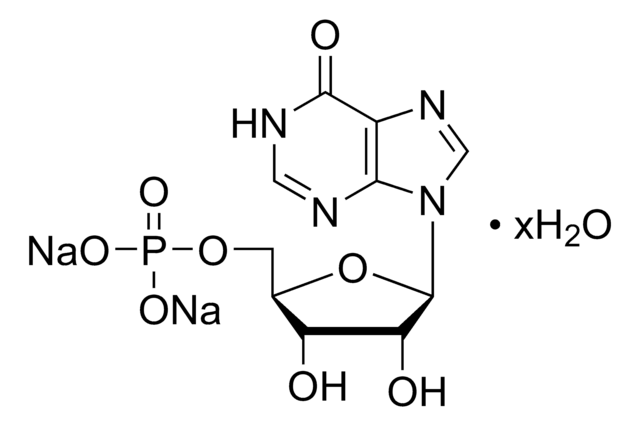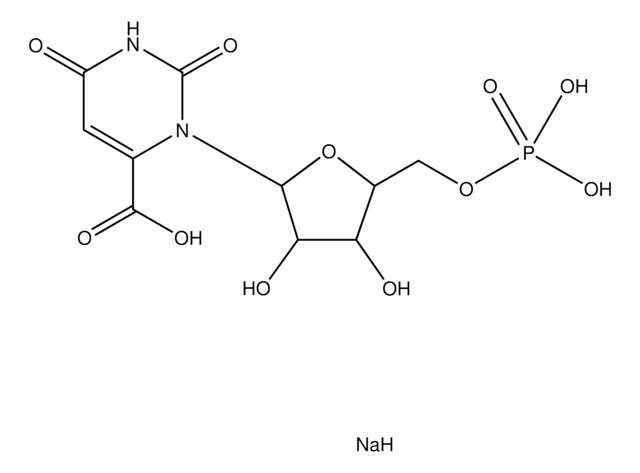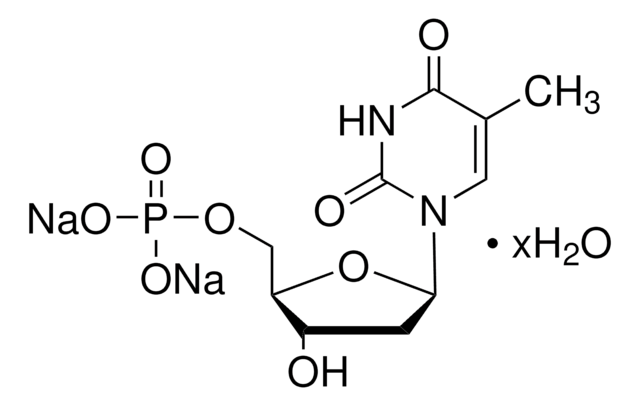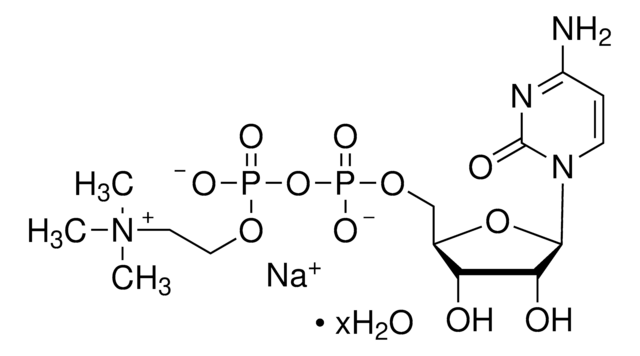U1752
Uridine 5′-monophosphate
≥98%
Synonym(s):
U 5′-P, UMP, Uridylic acid
About This Item
Recommended Products
biological source
natural (organic)
Quality Level
Assay
≥98%
form
powder
solubility
H2O: soluble 50 mg/mL, clear, colorless
storage temp.
−20°C
SMILES string
OC1C(O)C(OC1COP(O)(O)=O)N2C=CC(=O)NC2=O
InChI
1S/C9H13N2O9P/c12-5-1-2-11(9(15)10-5)8-7(14)6(13)4(20-8)3-19-21(16,17)18/h1-2,4,6-8,13-14H,3H2,(H,10,12,15)(H2,16,17,18)
InChI key
DJJCXFVJDGTHFX-UHFFFAOYSA-N
Looking for similar products? Visit Product Comparison Guide
General description
Application
Biochem/physiol Actions
Storage Class Code
11 - Combustible Solids
WGK
WGK 3
Flash Point(F)
Not applicable
Flash Point(C)
Not applicable
Personal Protective Equipment
Regulatory Listings
Regulatory Listings are mainly provided for chemical products. Only limited information can be provided here for non-chemical products. No entry means none of the components are listed. It is the user’s obligation to ensure the safe and legal use of the product.
JAN Code
U1752-1G:
U1752-500MG:
U1752-BULK:
U1752-VAR:
U1752-5G:
Certificates of Analysis (COA)
Search for Certificates of Analysis (COA) by entering the products Lot/Batch Number. Lot and Batch Numbers can be found on a product’s label following the words ‘Lot’ or ‘Batch’.
Already Own This Product?
Find documentation for the products that you have recently purchased in the Document Library.
Customers Also Viewed
Protocols
ZIC®-cHILIC is a densely bonded zwitterionic stationary phase with phosphorylcholine functional groups covalently attached to silica.
HILIC separation is an alternative that permits sensitive MS detection and without the use of ion-pair reagents.
Our team of scientists has experience in all areas of research including Life Science, Material Science, Chemical Synthesis, Chromatography, Analytical and many others.
Contact Technical Service